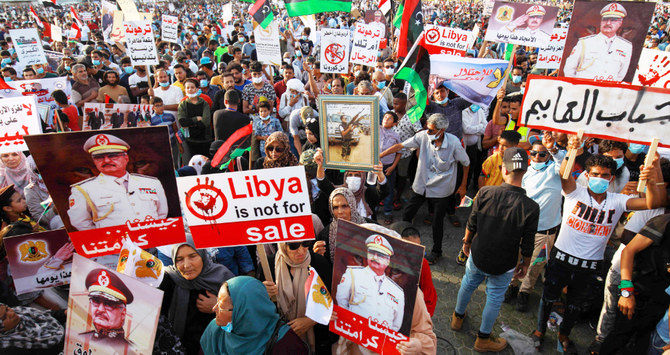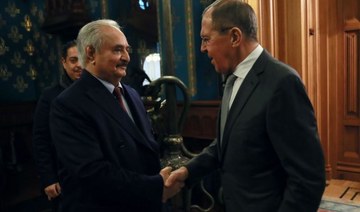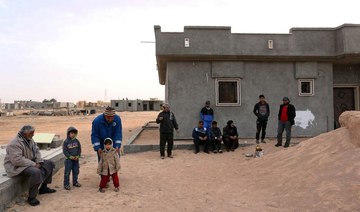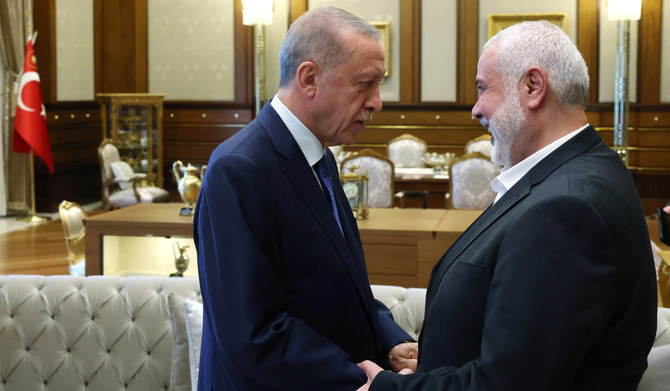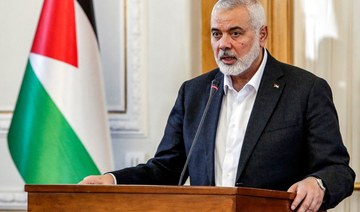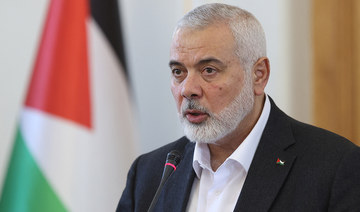CAIRO: A military buildup around the Libyan city of Sirte has raised fears of a major battle for control of the area’s strategic oil reserves.
The Libyan National Army (LNA), which has occupied Sirte since May, accused Turkey of targeting the oil-rich city and supplying militias in the area with weapons.
NLA spokesman Ahmed Al-Mesmari said that western Libya is under total Turkish control. He said that Turkey aims to reach Libya’s “oil crescent,” a coastal region home to most of its oil export terminals.
The NLA is closely monitoring Turkey’s moves in Sirte and Al-Jufra, he added. “We expect an attack on Sirte by Turkey and the militias at any time,” Al-Mesmari said.
His statement was confirmed a few days ago on a social media account affiliated with Turkey, which posted a map of areas under its control as well as the latest developments in Libya.
The map showed areas under the control of Khalifa Haftar, LNA commander, and the Government of National Accord (GNA). It also featured arrows illustrating that Sirte and Al-Jufra are the next targets of the GNA, despite a no-fly zone on the area imposed by the LNA.
The developments led UN Secretary-General Antonio Guterres to warn against a military buildup near Sirte.
The warning came after LNA troops led by Haftar retreated and GNA troops led by Fayez Al-Sarraj, prime minister of the GNA of Libya, advanced.
In a UN Security Council meeting chaired by Germany via video conference, Guterres said foreign interference in Libya had reached “unprecedented levels.”
He condemned the violation of a cease-fire in place since 2011, which also called for the handing over of advanced military equipment and a declaration of the number of mercenaries involved in the conflict. However, Guterres did not name the parties who violated the cease-fire.
HIGHLIGHTS
• LNA spokesman Al-Mesmari says that western Libya is under total Turkish control.
• Any violation of Sirte and Al-Jufra will push Egypt to intervene as per international norms, says El-Sisi,
• Representatives of Germany, US and France warn Turkey about its involvement in Sirte.
During the conference, the representatives of Germany, the US and France warned Turkey about its involvement in Sirte.
Egyptian Foreign Minister Sameh Shoukry indirectly criticized Turkey for sending Syrian militants to Libya.
“The transfer of Syrian extremist militants to Libyan territories by one of the regional parties aggravates the situation in Libya. This issue is a serious threat to the security of the Libyans as well as neighboring Mediterranean countries,” he said.
Shoukry added: “These threats clearly and currently endanger Egypt, and we will not tolerate this type of threats which are close to our borders, at a time when foreign interferences provide those militants with support.”
Egyptian President Abdel Fattah El-Sisi suggested that any violation of Sirte and Al-Jufra will push Egypt to intervene in accordance with international norms.
Egyptian military expert Samir Farag said that oil is the main reason behind Turkish President Recep Tayyip Erdogan’s interference in Libya. Farag said that Sirte and Al-Jufra are Erdogan’s two main goals in controlling Libya’s “oil crescent.”
Mohamed El-Ghobary, former director of the Egyptian National Defense College, said Libya has become “an international venue for conflict that is not only regional.”
“The whole world agreed that Sirte is a red line and that whoever crosses that line is an aggressor,” he said. El-Ghobary added that Sirte is in the middle of Libya and controls the transfer of oil from south to north, and that Turkey aims to deploy there because of this. But Egypt would not allow this, he said.



